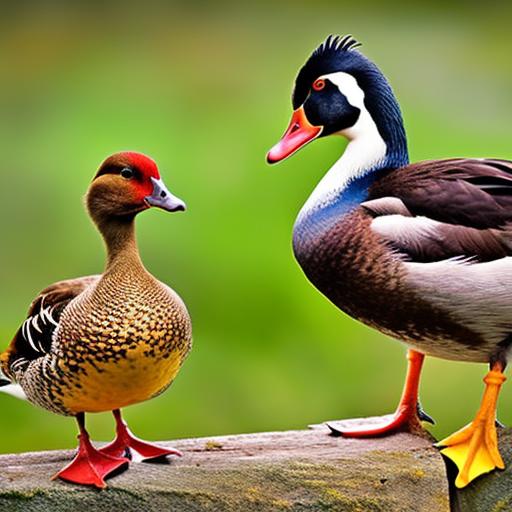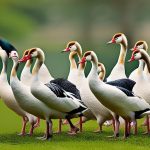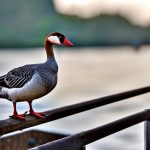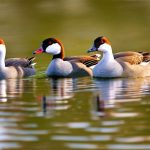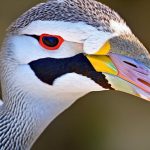Keeping ducks, chickens, and geese together can be a rewarding and enjoyable experience for poultry enthusiasts. Each of these birds has its own unique characteristics and requirements, but with proper planning and management, they can coexist harmoniously in the same living environment. Ducks are known for their friendly and sociable nature, chickens are valued for their egg-laying abilities, and geese are prized for their watchful and protective instincts. By understanding the behavior and needs of each species, creating a suitable living environment, providing proper nutrition, managing health and disease, and understanding social dynamics, it is possible to successfully keep ducks, chickens, and geese together.
Key Takeaways
- Ducks, chickens, and geese can be kept together, but it’s important to understand their behavior and needs to ensure a harmonious living environment.
- Ducks, chickens, and geese have different social dynamics and communication styles, so it’s crucial to create a suitable living environment that meets the needs of all three species.
- Providing a balanced diet with appropriate nutrition is essential for the health and well-being of ducks, chickens, and geese.
- Regular health checks, vaccinations, and disease management are important for keeping ducks, chickens, and geese healthy and disease-free.
- Understanding and managing the interactions and social dynamics between ducks, chickens, and geese is key to maintaining a peaceful and cohesive flock.
Understanding the Behavior and Needs of Ducks, Chickens, and Geese
Ducks, chickens, and geese each have their own unique behaviors and needs that must be taken into consideration when keeping them together. Ducks are highly social animals that thrive in the company of others. They are also known for their love of water and should have access to a pond or shallow pool for swimming and foraging. Chickens are natural foragers and enjoy scratching and pecking at the ground for insects and plants. They also require a secure coop for roosting at night and laying eggs. Geese are known for their protective nature and can be aggressive towards perceived threats. They also require access to water for swimming and foraging. Understanding these behaviors and needs is essential for creating a harmonious living environment for ducks, chickens, and geese.
When it comes to the needs of ducks, chickens, and geese, it is important to consider their housing requirements. Ducks require a sheltered area for protection from predators and the elements, as well as access to water for swimming and foraging. Chickens need a secure coop with nesting boxes for laying eggs and roosting at night. Geese also require a secure shelter for protection from predators and the elements, as well as access to water for swimming and foraging. Providing suitable housing that meets the needs of all three species is essential for their health and well-being.
Creating a Suitable Living Environment for Ducks, Chickens, and Geese
Creating a suitable living environment for ducks, chickens, and geese involves providing adequate space, shelter, and access to water and foraging areas. Ducks, chickens, and geese all require ample space to roam and forage. Providing a large outdoor area with plenty of grass, plants, and insects to explore is essential for their physical and mental well-being. Additionally, each species requires a secure shelter for protection from predators and the elements. This can include a coop for chickens, a sheltered area for ducks, and a secure enclosure for geese.
Access to water is also crucial for ducks, chickens, and geese. Ducks are particularly fond of water and should have access to a pond or shallow pool for swimming and foraging. Chickens also benefit from having access to water for drinking and bathing. Geese require water for swimming and foraging as well. Providing access to clean water is essential for the health and well-being of all three species.
In addition to space, shelter, and water, providing suitable foraging areas is important for ducks, chickens, and geese. All three species are natural foragers and enjoy scratching and pecking at the ground for insects and plants. Providing access to grassy areas, gardens, or pastures where they can forage is essential for their physical and mental stimulation.
Feeding and Nutrition Requirements for Ducks, Chickens, and Geese
Feeding and nutrition requirements for ducks, chickens, and geese vary based on their individual needs and dietary preferences. Ducks are omnivores that enjoy a diet of grains, insects, plants, and aquatic vegetation. They also require access to water for drinking and foraging. Chickens are also omnivores that enjoy a diet of grains, seeds, insects, and plants. They require access to a balanced feed that provides essential nutrients for egg production and overall health. Geese are herbivores that enjoy a diet of grasses, plants, and grains. They also require access to water for drinking and foraging.
Providing a balanced diet that meets the nutritional needs of ducks, chickens, and geese is essential for their health and well-being. This can include commercial poultry feed that is formulated specifically for each species, as well as supplemental treats such as fruits, vegetables, mealworms, or kitchen scraps. It is important to provide access to clean water at all times to ensure proper hydration and digestion.
In addition to providing a balanced diet, it is important to monitor the feeding habits of ducks, chickens, and geese to ensure they are receiving adequate nutrition. This can include observing their behavior at feeding time, monitoring their body condition, and making adjustments to their diet as needed. Providing proper nutrition is essential for the overall health and productivity of ducks, chickens, and geese.
Health and Disease Management for Ducks, Chickens, and Geese
Managing the health and disease of ducks, chickens, and geese requires proactive measures to prevent illness and provide prompt treatment when necessary. Each species has its own unique health considerations that must be taken into account when keeping them together. Ducks are susceptible to respiratory infections, parasites, and botulism from contaminated water sources. Chickens are prone to respiratory infections, mites, lice, coccidiosis, and egg-related issues. Geese are susceptible to respiratory infections, bumblefoot from standing on hard surfaces, as well as parasites.
Preventative measures such as regular health checks, vaccinations (if applicable), parasite control, biosecurity measures, proper nutrition, clean water sources, and suitable living conditions can help reduce the risk of illness in ducks, chickens, and geese. It is important to observe the behavior of each bird closely to detect any signs of illness or distress early on.
In the event of illness or injury, prompt treatment is essential to prevent the spread of disease and minimize suffering. This can include isolating sick or injured birds from the rest of the flock, seeking veterinary care when necessary, providing supportive care such as warmth or hydration, administering medication as prescribed by a veterinarian if needed.
Managing Interactions and Social Dynamics Between Ducks, Chickens, and Geese
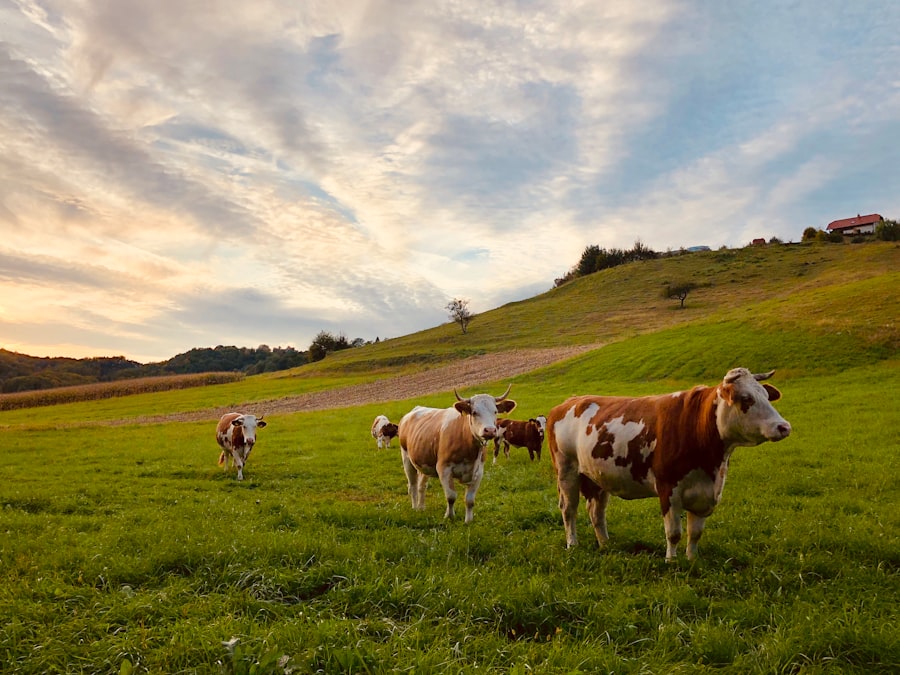
Managing interactions between ducks, chickens, and geese involves understanding their social dynamics and providing a harmonious living environment. Ducks are known for their friendly nature but can be territorial during mating season or when establishing a pecking order within the flock. Chickens have a complex social structure with established hierarchies that can lead to aggression or bullying within the flock. Geese are known for their protective instincts towards their flock mates but can be aggressive towards perceived threats.
To manage interactions between ducks, chickens, and geese it is important to provide adequate space to reduce competition for resources such as food or water. Providing multiple feeding stations or water sources can help reduce conflict within the flock. Additionally, providing suitable enrichment such as perches or hiding spots can help reduce stress or aggression within the flock.
Understanding the social dynamics of each species can also help prevent conflicts within the flock. For example, introducing new birds gradually or providing separate areas within the living environment can help reduce stress during the integration process. It is important to monitor the behavior of each bird closely to detect any signs of aggression or distress early on.
Tips for Successfully Keeping Ducks, Chickens, and Geese Together
Successfully keeping ducks, chickens, and geese together requires careful planning and management to meet the unique needs of each species. Providing adequate space, shelter, access to water and foraging areas is essential for their physical and mental well-being. Understanding their behavior and social dynamics can help prevent conflicts within the flock.
Feeding a balanced diet that meets the nutritional needs of ducks, chickens, and geese is essential for their health and productivity. Monitoring their feeding habits closely can help ensure they are receiving adequate nutrition.
Managing the health of ducks, chickens, and geese involves proactive measures such as regular health checks, preventative care such as vaccinations (if applicable), parasite control biosecurity measures.
Understanding the social dynamics of each species can help prevent conflicts within the flock by providing adequate space reducing competition for resources such as food or water.
By following these tips and guidelines it is possible to successfully keep ducks,chickens,and geese together in harmony while meeting their individual needs.
By providing adequate space, shelter, and access to food and water, as well as ensuring that each species has their own nesting area and protection from predators, it is possible to create a harmonious environment for ducks, chickens, and geese. Additionally, observing their behavior and making adjustments as needed can help to maintain a peaceful coexistence. With proper care and attention, it is possible to enjoy the benefits of having these different bird species together while meeting their individual needs.
If you’re considering keeping ducks, chickens, and geese together, it’s important to understand the dynamics of cohabitating different poultry species. According to a recent article on PoultryWizard.com, “The Chicken Coop Country Diner,” it’s essential to provide adequate space and resources for each type of bird to thrive in a mixed flock setting. The article offers valuable insights into creating a harmonious environment for ducks, chickens, and geese to coexist peacefully. For more tips on creating a suitable living space for your poultry, check out the article here.
FAQs
Can I keep ducks, chickens, and geese together?
Yes, it is possible to keep ducks, chickens, and geese together in the same coop or living space. However, there are some important considerations to keep in mind to ensure the well-being of all the birds.
What are the considerations for keeping ducks, chickens, and geese together?
It is important to provide enough space for all the birds to move around comfortably. Additionally, each species has different dietary and environmental needs, so it is important to provide appropriate food, water, and shelter for each type of bird.
What are the benefits of keeping ducks, chickens, and geese together?
Keeping ducks, chickens, and geese together can provide a diverse and interesting flock. Each species has its own unique behaviors and characteristics, and they can also help to keep pests under control in the area.
Are there any potential challenges to keeping ducks, chickens, and geese together?
One potential challenge is that ducks and geese may have different water requirements than chickens, so it is important to provide appropriate water sources for each species. Additionally, some territorial behavior or aggression may occur, so it is important to monitor the birds closely and provide enough space for them to establish their own territories.
What are some tips for successfully keeping ducks, chickens, and geese together?
Providing ample space, appropriate food and water sources, and monitoring the birds for any signs of aggression or stress are important tips for successfully keeping ducks, chickens, and geese together. It is also important to provide separate nesting areas for each species to ensure that they have their own space for laying eggs.
Meet Walter, the feathered-friend fanatic of Florida! Nestled in the sunshine state, Walter struts through life with his feathered companions, clucking his way to happiness. With a coop that’s fancier than a five-star hotel, he’s the Don Juan of the chicken world. When he’s not teaching his hens to do the cha-cha, you’ll find him in a heated debate with his prized rooster, Sir Clucks-a-Lot. Walter’s poultry passion is no yolk; he’s the sunny-side-up guy you never knew you needed in your flock of friends!

